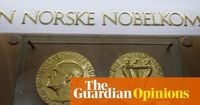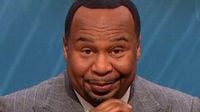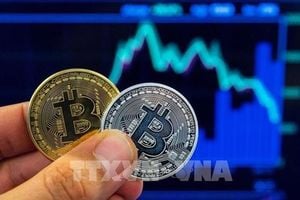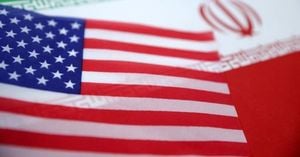When the Norwegian Nobel Committee announced Venezuelan opposition leader María Corina Machado as the recipient of the 2025 Nobel Peace Prize on October 10, the decision sent ripples across the globe—especially in Washington, Moscow, and Caracas. Machado, recognized for her remarkable courage in advancing democratic rights and her tireless efforts for a peaceful transition from dictatorship to democracy in Latin America, became a symbol of civilian bravery. Yet, the award’s aftermath has been anything but peaceful, as it reignited fierce debate over the prize’s purpose and prestige, and notably, over who truly deserved it this year.
President Vladimir Putin, speaking to reporters after his state visit to Tajikistan, didn’t mince words about his skepticism toward the Nobel Committee’s recent choices. While he refrained from criticizing Machado’s selection directly, Putin lamented the committee’s history of honoring individuals who, in his view, "had done nothing for peace." He asserted, "In my view, these decisions inflicted enormous damage on the prize’s prestige. A person comes along – good or bad – and within a month or two, boom. For what? They had done absolutely nothing. Is that how it should work? It ought to be awarded for actual merits. I believe its prestige has been significantly undermined." According to BBC, many interpreted Putin’s comments as a veiled reference to Barack Obama’s 2009 win, a decision that has long drawn controversy.
Putin also seemed to suggest that Donald Trump, the recently re-elected U.S. president, had accomplished more in the realm of international peace. "My American counterpart has genuinely done much to resolve complex crises that have persisted for years, if not decades," Putin noted, hinting at Trump’s involvement in various global negotiations.
Trump himself was quick to address the outcome. He confirmed that he had spoken with Machado after her win. According to Trump, Machado told him, "I’m accepting this in honor of you, because you really deserved it." The White House, too, expressed frustration with the committee’s decision. Communications director Steven Cheung accused the Nobel Committee of "placing politics over peace" by honoring Machado instead of Trump, writing on X, "He (the president) has the heart of a humanitarian, and there will never be anyone like him who can move mountains with the sheer force of his will."
For Trump and his supporters, the Nobel Peace Prize had become a coveted validation of his presidency—especially after a campaign that emphasized his role in ending several global conflicts. The disappointment was palpable, and the sense of grievance spilled into the media. CNN contributor Scott Jennings, appearing on "The Arena with Kasie Hunt" on October 11, flatly declared, "President Donald Trump deserved to win the Nobel Peace Prize." Jennings went further, criticizing Democrats for allegedly failing to root for America’s success simply because Trump was president. "This is the core problem of the Democratic Party ... you cannot bring yourself to root for America because Donald Trump is the president," he said.
The discussion quickly became heated. Jamal Simmons, a fellow panelist and former communications director for Vice President Kamala Harris, countered Jennings by highlighting domestic unrest, including the case of a Chicago pastor shot with a pepper-spray ball by immigration agents. Simmons argued that it was difficult for many Americans to support Trump, given both foreign policy moves and turmoil at home. "You’ve got all this disarray happening at home, and it’s so hard for people who want to root for American success to root for Donald Trump, because Donald Trump is doing both of these things at the same time," Simmons said, referencing both the Israel-Palestine peace deal and military deployments on U.S. streets.
Jennings was undeterred, listing what he saw as Trump’s achievements: controversial military strikes on Iran, "eight other peace agreements," and his mediation of the 2020 Abraham Accords. "I hope he does get it, because at the end of the day, it will piss off all the right people. And I just, I would be so happy. I would be so happy," Jennings admitted, revealing the deeply partisan emotions the Nobel Prize has come to evoke in U.S. politics.
Meanwhile, Machado’s win was not without its own political implications. Barred from running for president by Venezuela’s courts, she became a rallying point for pro-democracy movements in Latin America. In her acceptance speech, she acknowledged Trump’s support for Venezuelan democratic reform, a gesture that some saw as a nod to international solidarity. The Guardian reported that MAGA supporters were "predictably, upset about it all," with conservative commentator Sean Davis of The Federalist dismissing the Nobel as "beneath" Trump and "a joke."
For critics of Trump, the episode was yet another instance of the president’s grievance-driven politics. Dave Schilling, writing in The Guardian, observed, "Trump’s entire worldview seems predicated on a notion that life is unfair, the system is rigged and he alone can balance the scales back toward justice." Schilling pointed to Trump’s repeated complaints about losing the prize and other political setbacks as evidence of a broader pattern—one in which defeat is met not with reflection, but with attacks on the legitimacy of the process itself. "Didn’t win the peace prize? Alfred Nobel must have been a cuck and a beta and a loser. Might as well unplug the PlayStation that is democracy," Schilling quipped, capturing the mood of some on the American right.
Yet, the controversy also exposed deeper questions about the Nobel Peace Prize’s evolving identity. Is it an award for concrete achievements, or a recognition of symbolic acts of courage? Should it reward those who have already transformed the world, or those fighting against seemingly insurmountable odds? Putin’s critique, Trump’s sense of injustice, and Machado’s own struggles all speak to the complexity of these questions.
Adding to the confusion, the Nobel Committee’s rules state that nominations close in January—the same month Trump was sworn in for his second term. This timeline made it impossible for his recent efforts to be considered for the 2025 prize, a detail that was largely overlooked in the ensuing uproar. Nevertheless, the debate raged on, with each side projecting its own values and frustrations onto the meaning of the award.
As the dust settles, one thing is clear: the Nobel Peace Prize remains as controversial—and as coveted—as ever. Whether it honors the peacemakers of today or the dreamers of tomorrow, its power to stir passions and provoke debate is undiminished.





